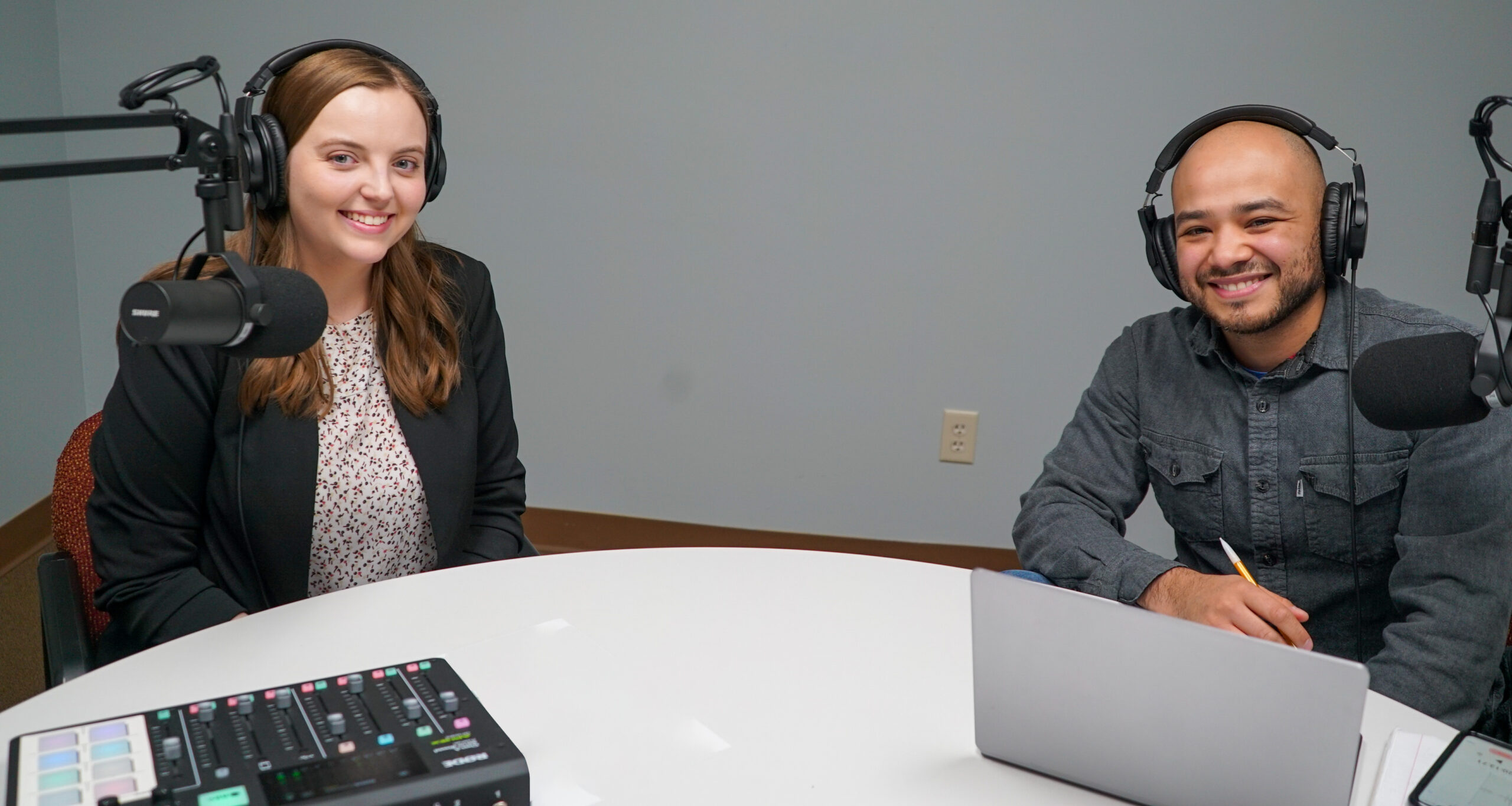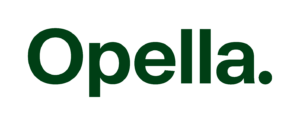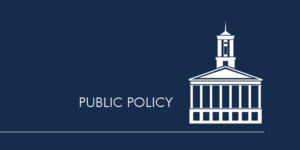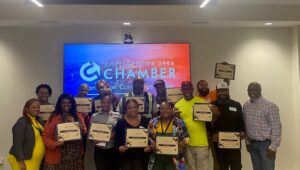Imagine you’re an entrepreneur whose startup is beginning to establish roots. You’re growing your marketing efforts organically, building a name for yourself through social media, networking events, trade shows, and support for community organizations like your local chamber of commerce. Your fledgling company has built its brand in the most cost-effective ways possible and now feels like the right time to try to expand your audience. Could 2023 be the year you launch a podcast for your small business? If so, how do you start?
Between managing your small business operations and the usual responsibilities of daily life, podcasting might seem like an unachievable project. What can appear to be just casual conversations between host and guest may actually require many hours spent scheduling, researching, preparing and producing content – with some interview excerpts that may never be published.
Entrepreneurs who decide to take on a podcast could find themselves in the position of overpromising and underdelivering: A 2021 study by iMore.com (along with similar research by PodcastIndex.org, an LLC dedicated to supporting independent podcasts through data) revealed that out of the 2 million titles in Apple’s podcast library, just over a quarter have only published a single episode.
But small business owners who continue producing episodes can reap the rewards of increased brand recognition, improved credibility as subject matter experts, new and expanded audiences, and telling a more engaging brand story by moving beyond other, more traditional channels such as blogs and social media.
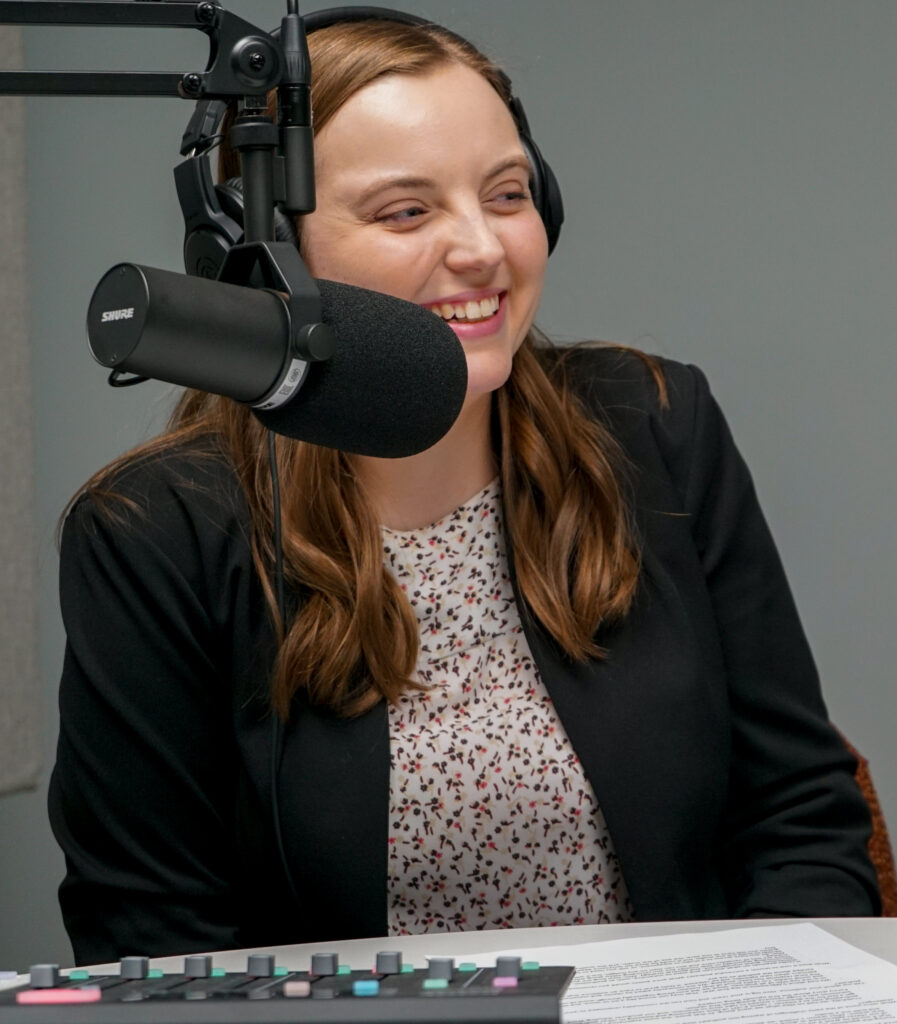
For Madison McCann, Office Supervisor and Marketing Coordinator at Tennessee Small Business Development Center (TSBDC), podcasting successfully should start from a baseline of a clearly articulated vision and purpose.
“You really should have a good reason before going into it: Ask yourself, what is my motivation for doing this? Am I trying to help people? If you know you’ll be able to accomplish that goal, it’ll be easy to keep it going,” she says.
McCann produces the “How to Business” podcast and serves as cohost alongside TSBDC Senior Small Business Consultants Sarah Mattson and Josh Brown; as well as their Executive Director, Lynn Chesnutt.
As part of a nationally accredited network of Small Business Development Centers, the TSBDC supports area startups with access to training, professional consulting and essential information. They operate out of Hamilton County’s Business Development Center (BDC) and are available to serve all small businesses in the greater Chattanooga region including those affiliated with the Chattanooga Chamber’s INCubator, also located inside the BDC.
McCann and her cohosts launched “How to Business” during the peak of the COVID-19 pandemic, when in-person meetings and communication was limited or impossible. Their goal was creating a rich library of content that clients could access virtually at any time.
By partnering with creative services company Missing Words Solutions, their inaugural season launched with 12 featured episodes that ran 35 to 45 minutes each. Podcast topics focused on business interests like e-commerce, food and beverage trends, bookkeeping, networking tips, and anything they thought entrepreneurs might need to help grow their companies.
“It’s making a difference for our clients in that they’re getting some actionable takeaways from these podcast episodes. Our goal was for our clients to take something they learned from a podcast conversation and implement it into their business right away,” McCann says.

Through a grassroots marketing effort that tapped into the BDC’s social media network and other word-of-mouth partnerships, “How to Business” generated about 5,000 listens within its first year. The podcast has since shared advice from preeminent subject-matter experts from companies like The Enterprise Center, The Johnson Group, Chatt365, and Local Venture Legal – while also highlighting startup success stories including Be Caffeinated, Hoff & Pepper, and The Bitter Bottle among others.
“When clients ask us questions about what’s current in the food and beverage industry or how to increase sales through social media marketing – whatever the topic may be – we always have plenty of resources we can share with them… If we’re not the subject-matter experts for a given area, we can find someone who is and connect you to that person,” McCann says.
To record their second season, McCann was able to acquire in-house production equipment which she now operates out of a soundproof studio inside the BDC. Complete with Shure SM7B Broadcasting microphones, Audio-Technica ATH-M20x headphones, and a RODECaster Pro II mixer, the TSBDC’s initial investment came to about $6,000 total.
With access to their own in-house, professional podcasting studio, McCann and team aim to grow their podcast audience over time. For entrepreneurs just starting out and experimenting with podcasting, McCann recommends a more modest, affordable approach. For example, the Chattanooga Downtown Public Library has an industry-standard recording studio available for use by library patrons at no cost. A starter set of personal equipment including microphones, headphones and a soundboard can be purchased for under $1,000, McCann explains.
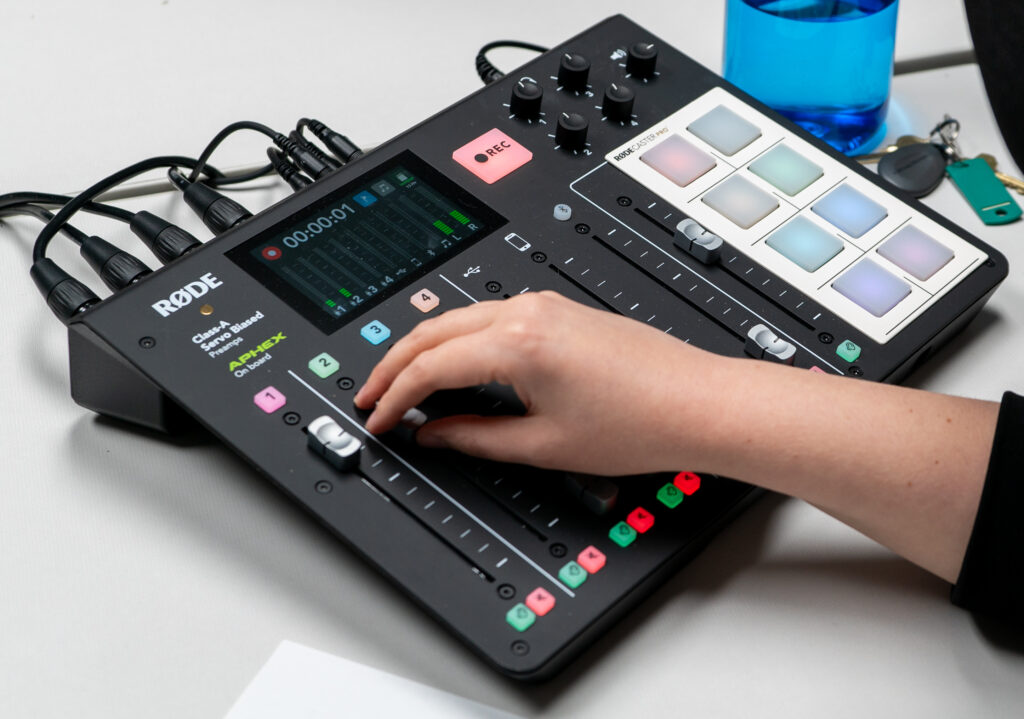
Beyond the upfront costs for equipment, McCann also recommends committing to a 10-episode minimum run; bearing in mind the first episode may require a second take (as was the case for “How to Business”). Patience is needed, as that first episode typically serves as a learning opportunity for getting the hang of best practices in podcasting.
“You’ll have to listen first. I recommend listening to a lot of podcasts, and different types of podcasts. This will give you ideas for what you’d want your podcast to be like; you’ll learn a lot from this exercise,” she says.
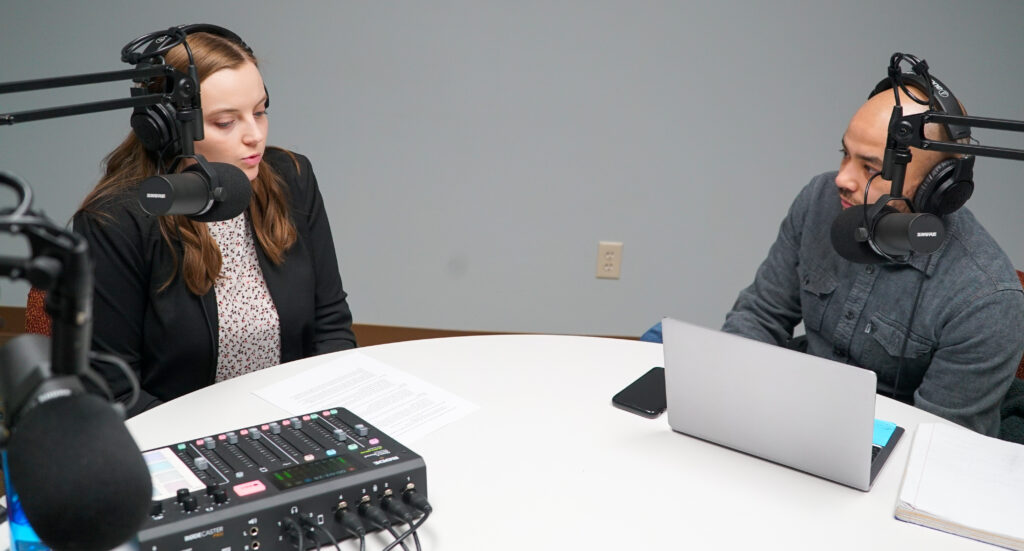
While any entrepreneur can start a podcast to help promote their small business, McCann notes the major purpose of any podcast is not to sell products but to instead create great content.
As the sophomore season of “How to Business” just wrapped and a third season is underway, McCann and team continue to receive encouragement and praise from audiences across Tennessee.
“You really need a good network of cheerleaders for your podcast: People who will listen to it, and share it with their friends,” McCann says. “Maybe you can bounce ideas off them, and during times when you feel like you can’t keep it going, they’ll help you to stay motivated.”
McCann’s top How to Business episodes:
* E06: 7 Common Business Myths
* E13: Your Tools for Networking
* E21: Your Tools for Social Media Management
Learn more at the Tennessee Small Business Development Center website.
Listen to “How to Business,” here.
